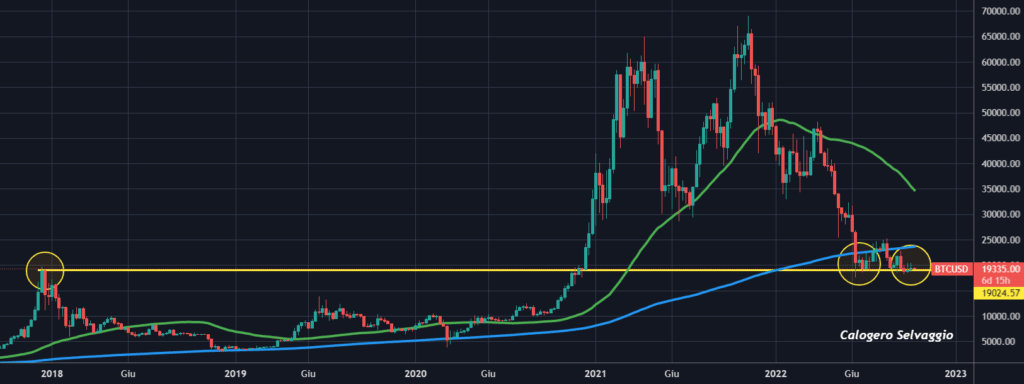Is Bitcoin the only crypto to bet on?
by James · October 10, 2022
A positive news these days is related to Bitcoin’s Lightning Network. The king of crypto, thanks to this layer 2, has reached 5000 BTC capacity.
Despite macroeconomic momentum and falling prices, adoption continues to grow.
Lightning network allows users to send Bitcoin quickly and with very low fees. In fact, the greater the capacity of the network, the greater the volume of potential transactions.
According to the exchange KuCoin, in its report entitled “Into the Crypto,” it explained that India could be one of the pioneer nations in this field. Investors ranging from the youngest to the most experienced (about 15%) said they have a portion of their investments in crypto.
Coming back to Bitcoin’s price, it has been clinging to the $20,000-$19,000 threshold for several months now (since June), thanks to hodlers who have been holding the crypto for a long time. Fundamental support, corresponding to the highs recorded in 2017, which would otherwise see the price move in the direction of $18,000 – $17,000.

BTCs dominance appears to be ready for recovery. In the past, when it has retested 39.5-40%, it has subsequently led to an improvement.

The problems of lack of regulation and the Italian OAM
As we all know, the approach to crypto seems to be very cautious in many European and non-EU countries. This is because the skepticism surrounding this “new world”, unfortunately, is greater than for other innovations and developments.
Despite this, in Italy there are more than 70 cryptocurrency companies, such as Coin base, Crypto.com and Binance, has received regulatory approval without actually performing the proper checks. The problem is certainly not in the platforms, but in how Italian rules are structured.
What is surprising is that the Italian OAM (Supervisory body for agents and brokers)which is in charge of managing the lists of financial agents operating in the country (regulatory authority), often criticized in various European countries for processing delays, quickly added 73 crypto companies to the new list of service providers.
Obtaining regulatory approval from a regulator indicates to all investors that a given company has been “reviewed”, but in Italy it may not have been done yet. In fact, it would have been confirmed to CoinDesk, that the regulator is deciding how to collect data from companies and is likely to start doing so next year. This means that money flows are currently not monitored to prevent malicious parties from using the platforms.
All Italy is currently asking for is “just” a registration
A promise that the company will be scrutinized by regulators in the future?
This is one of the many reasons why it is good to research a company before investing money in projects. If we often hear about fraud and projects that disappear overnight into thin air, it is due, among other things, to poor regulation.
Such episodes have not been few: the (unofficial) Squid Game token inspired by the TV series collapsed to zero from the high of $2,656 while developers allegedly profited more than 3 million dollars with a carpet cover. Bitconnectan Indian company that promised 120% returns per year (if the revenue generated was withdrawn after one year), through a Ponzi scheme enabled its (anonymous) founders to illegally earn approx. 2 billion dollars.
But the biggest scam in cryptocurrency history in terms of stolen funds is probably the one OneCoin where more than $10 billion in funding was achieved. It was also a Ponzi scheme that consisted of buying bundles and getting others to buy them of varying value, getting access to courses on trading, blockchain and getting tokens as gifts.
The case of BNB Chain
A few days ago BNB Chain, the blockchain of the cryptocurrency exchange Binance, was suspended (for a few days) due to an exploit on the cross-chain worth $100 million (a structural flaw appeared that caused a block verification to be forged).
BNB assured that all funds were safe. It also froze another $400 million in time, while Tether blacklisted all incriminated addresses.
Notable is the speed with which BNB’s chain was blocked. This is a clear sign of the centralization of the network, which has attracted discontent. But what would have happened if the latter had not been stopped and thus demonstrated its decentralization? Sometimes this is not a bad thing. But this again shows that 90% of DeFi is more centralized than one would think.

